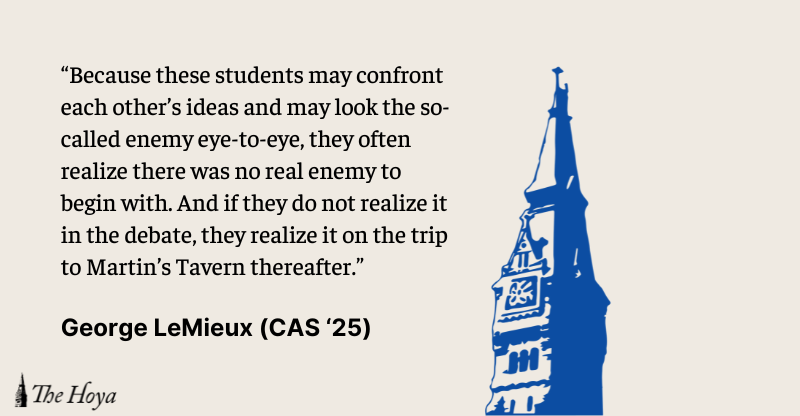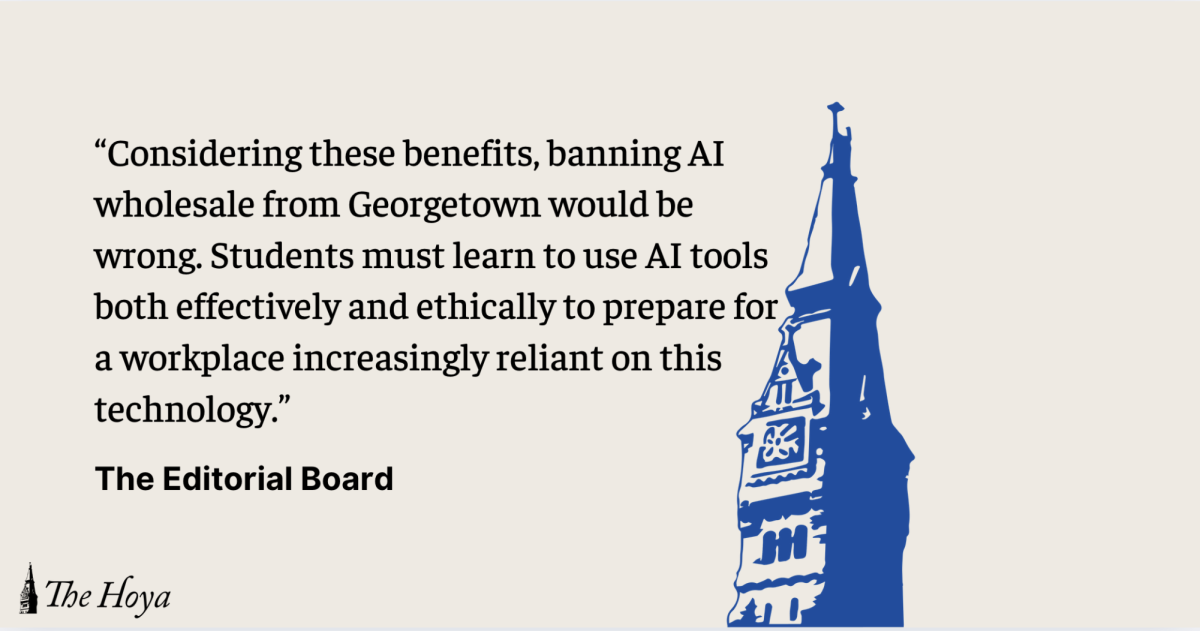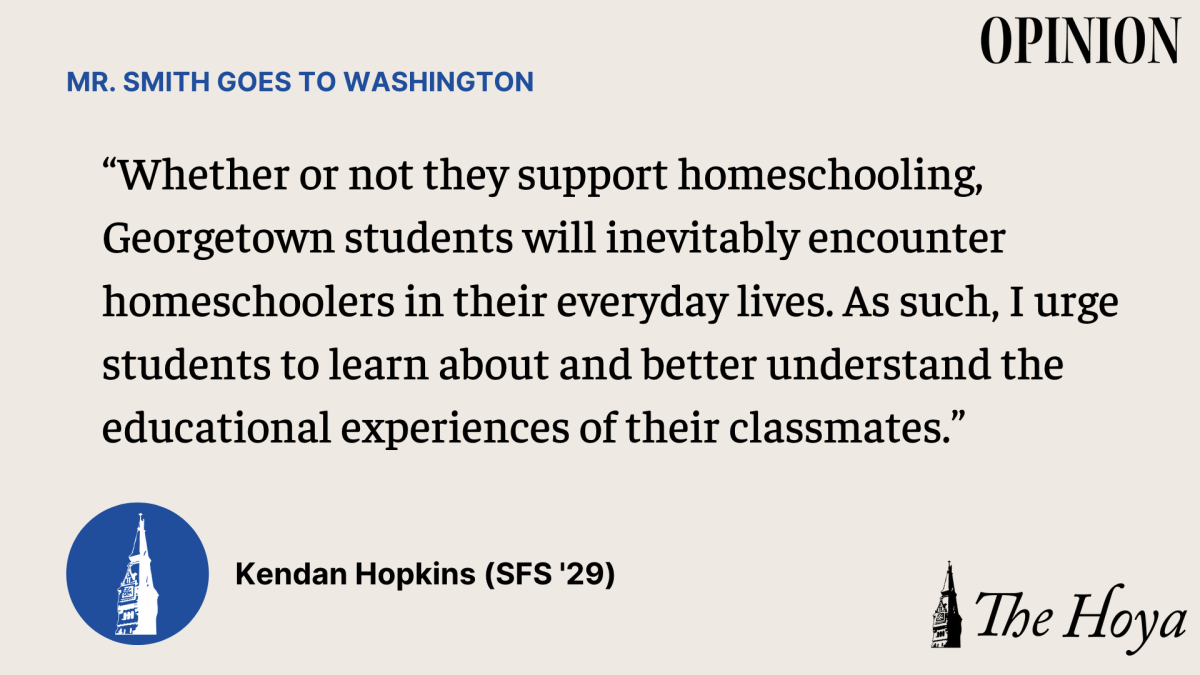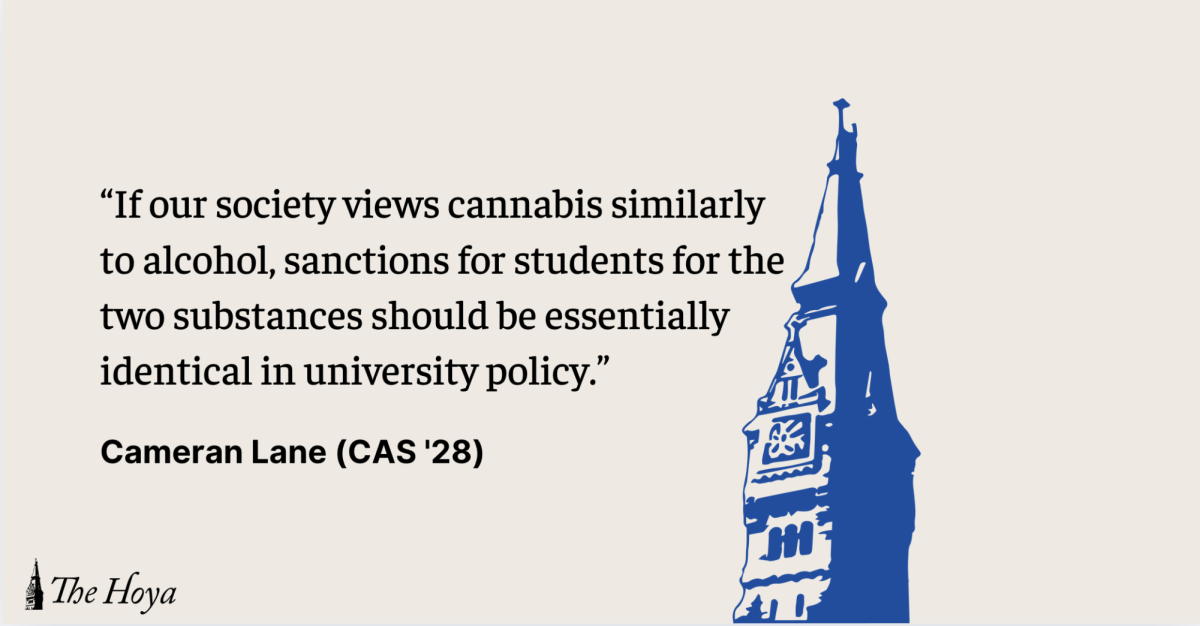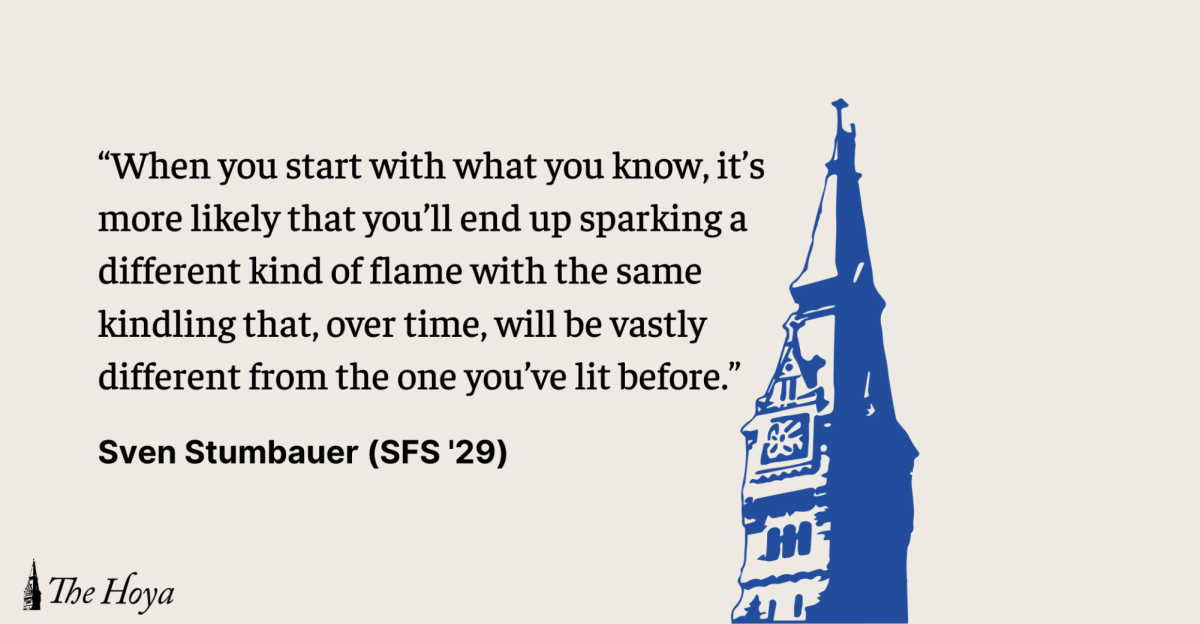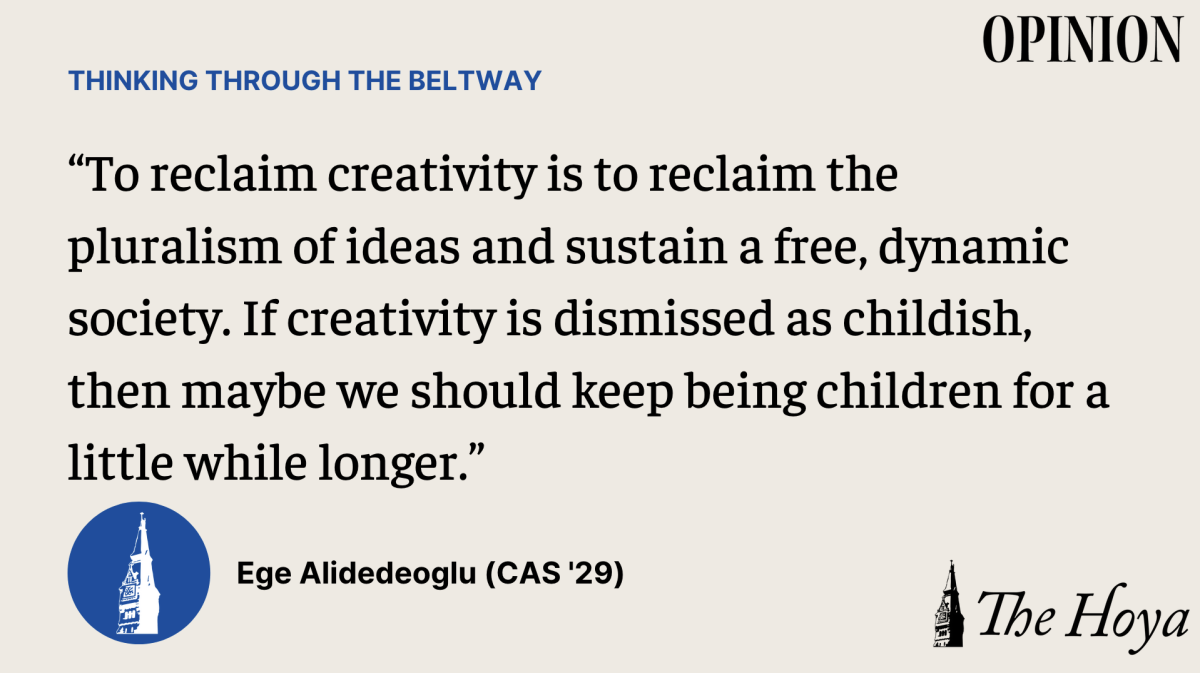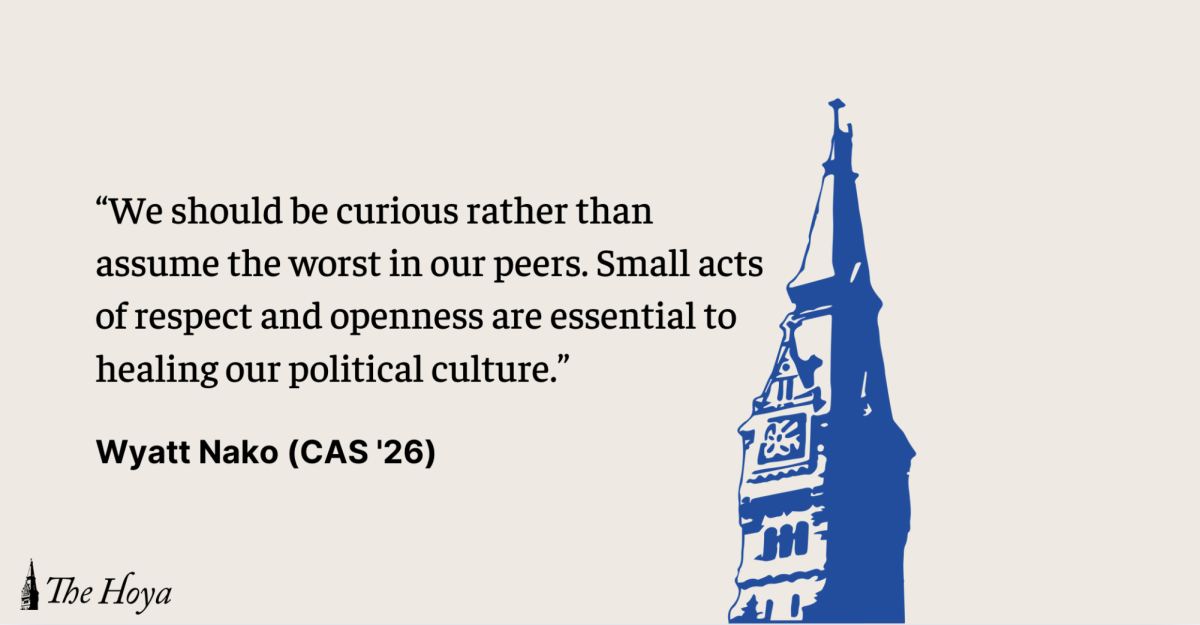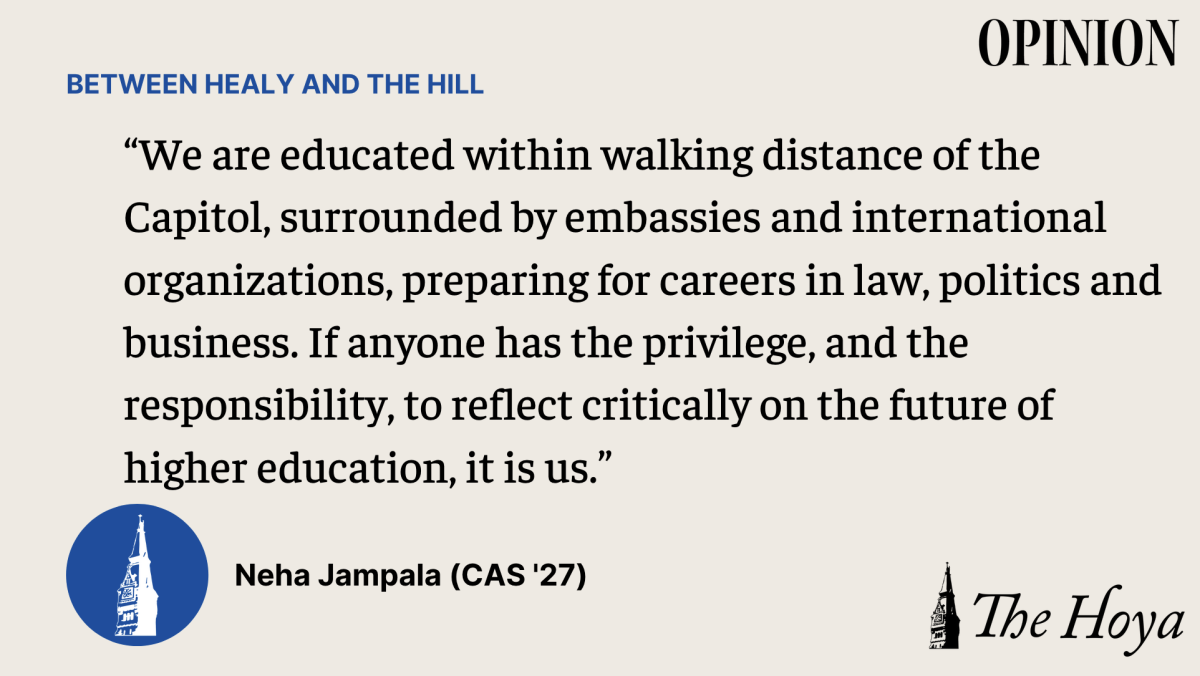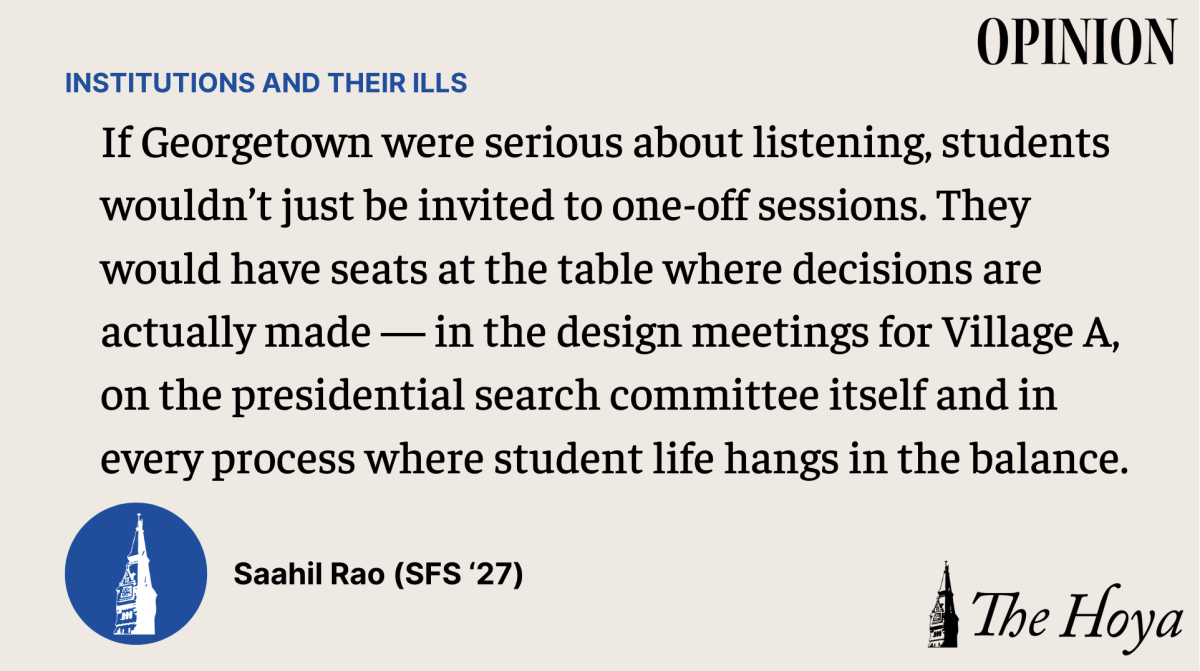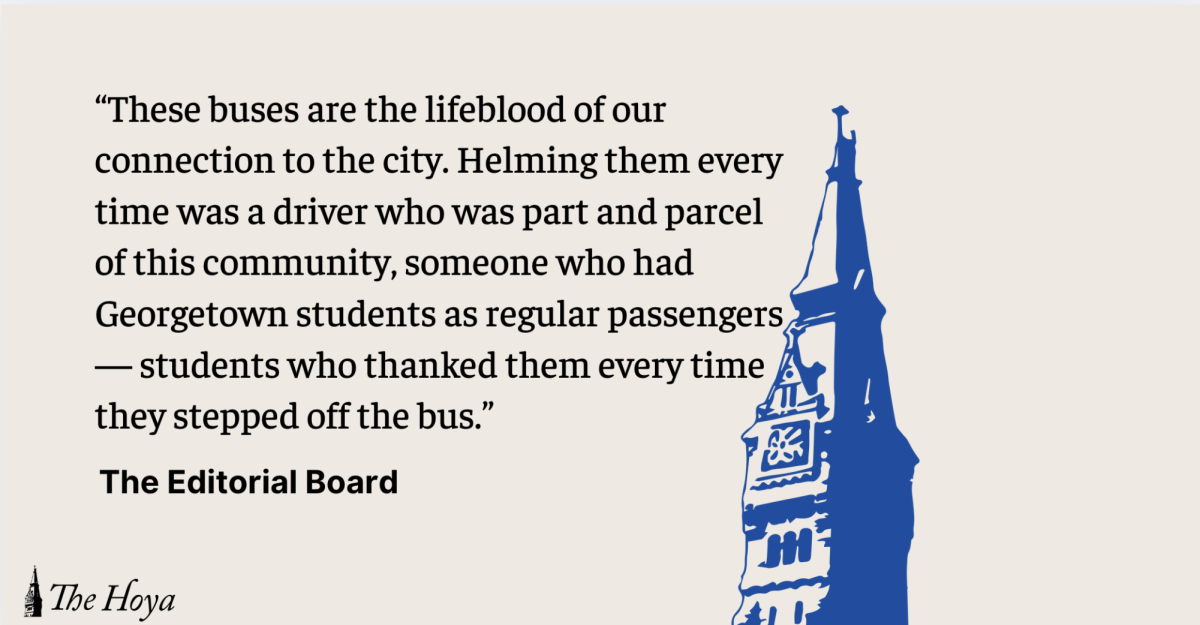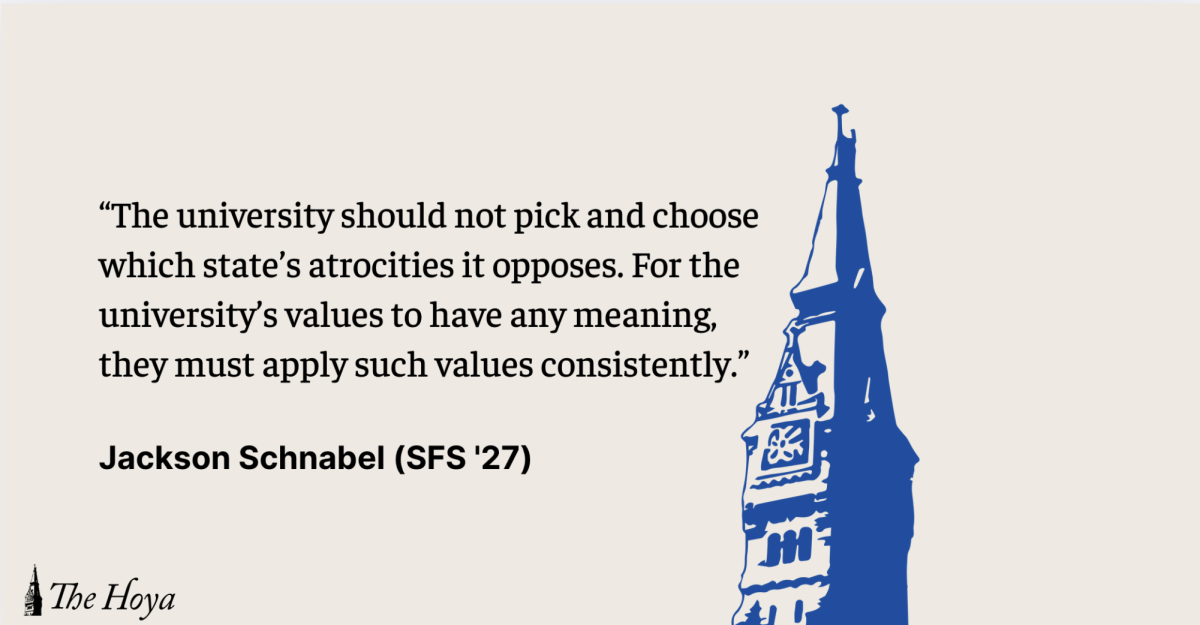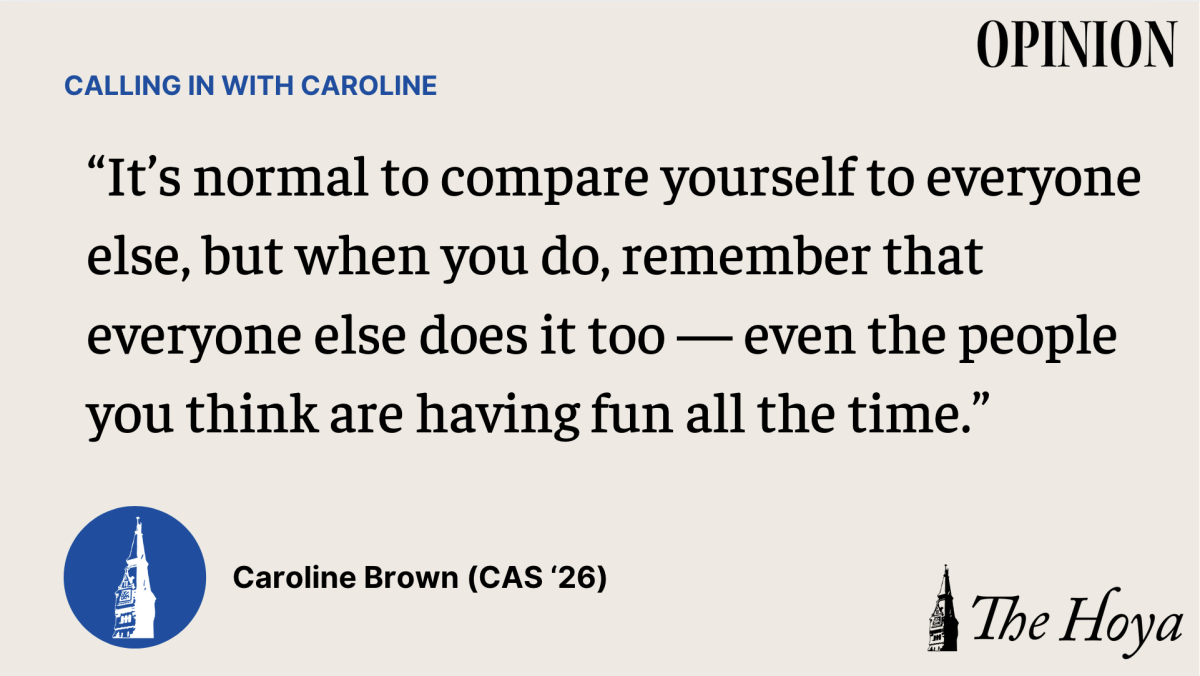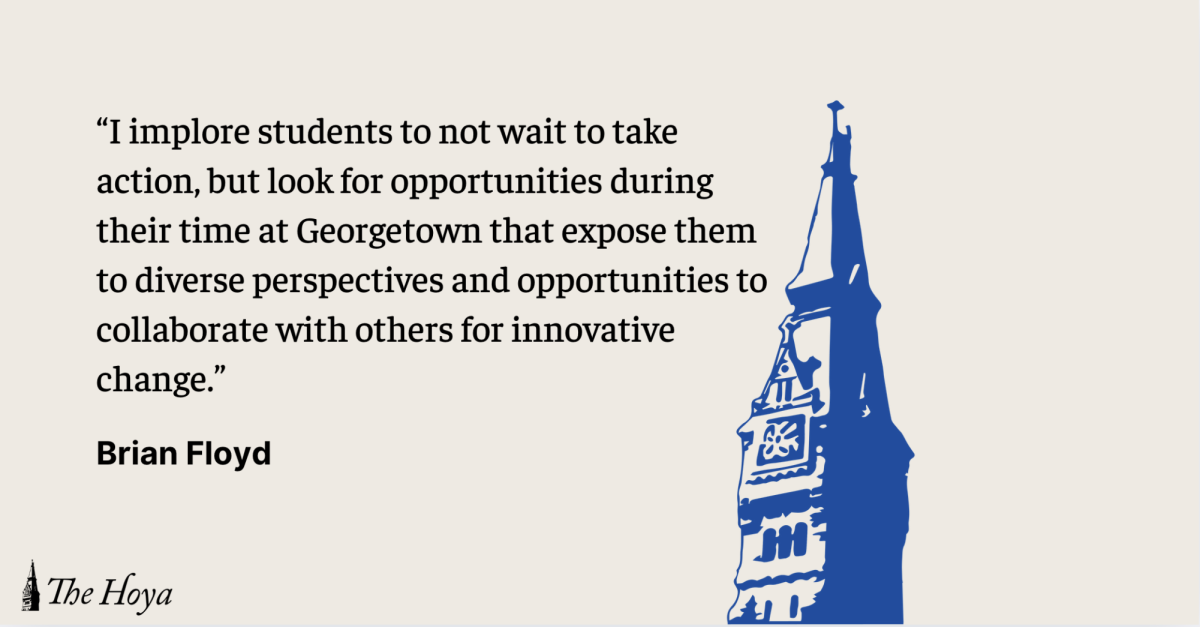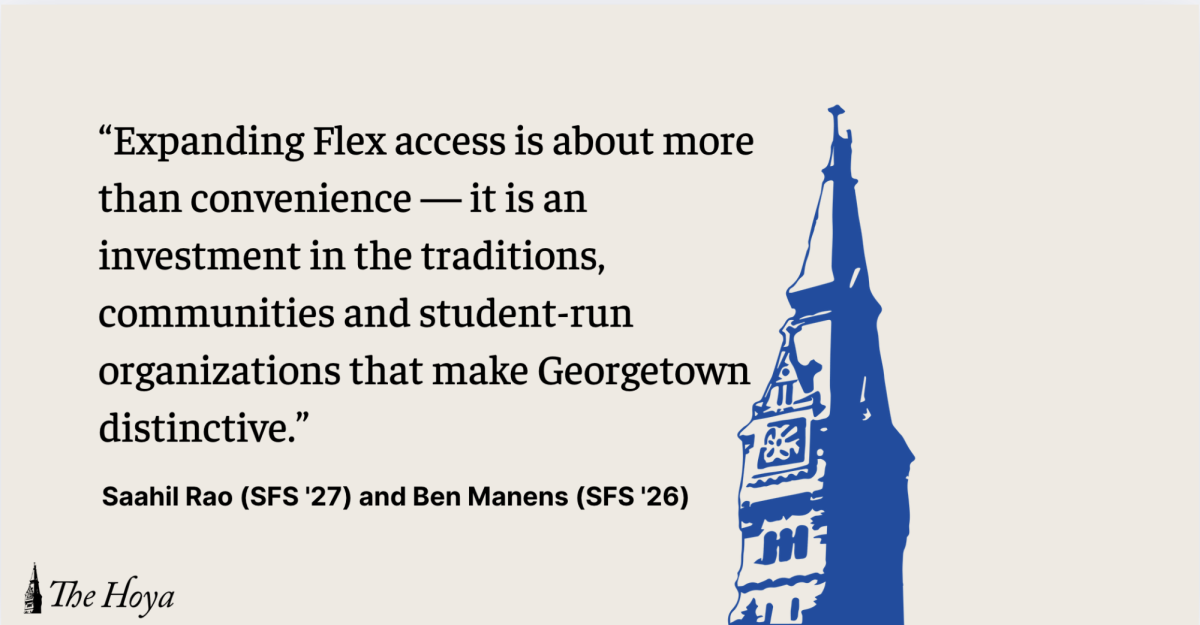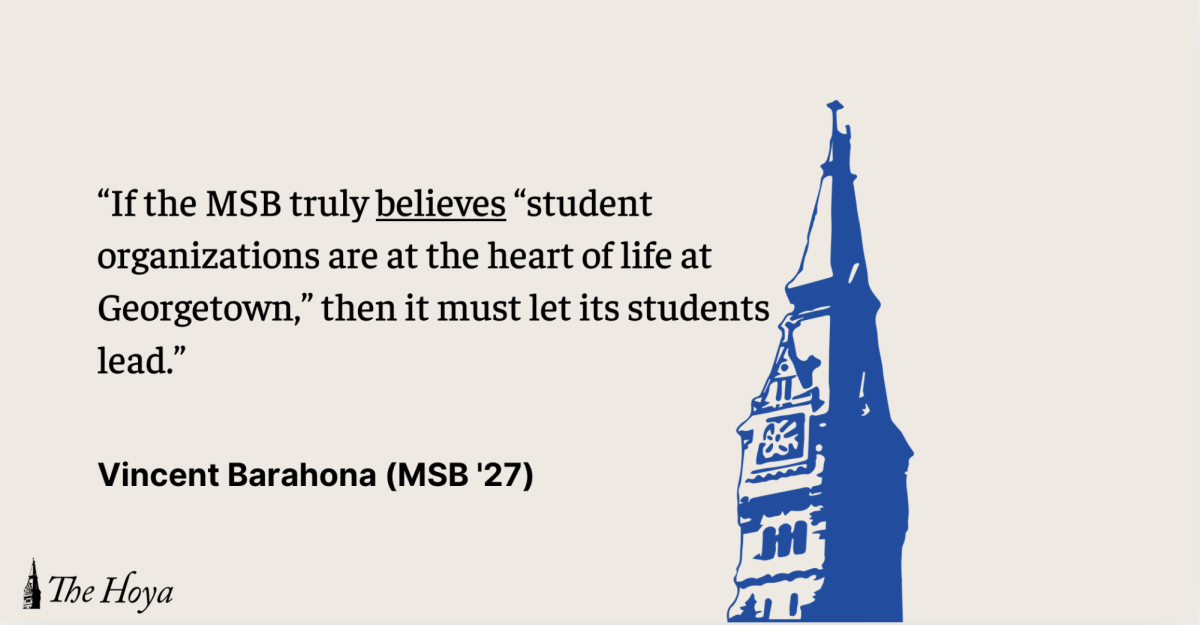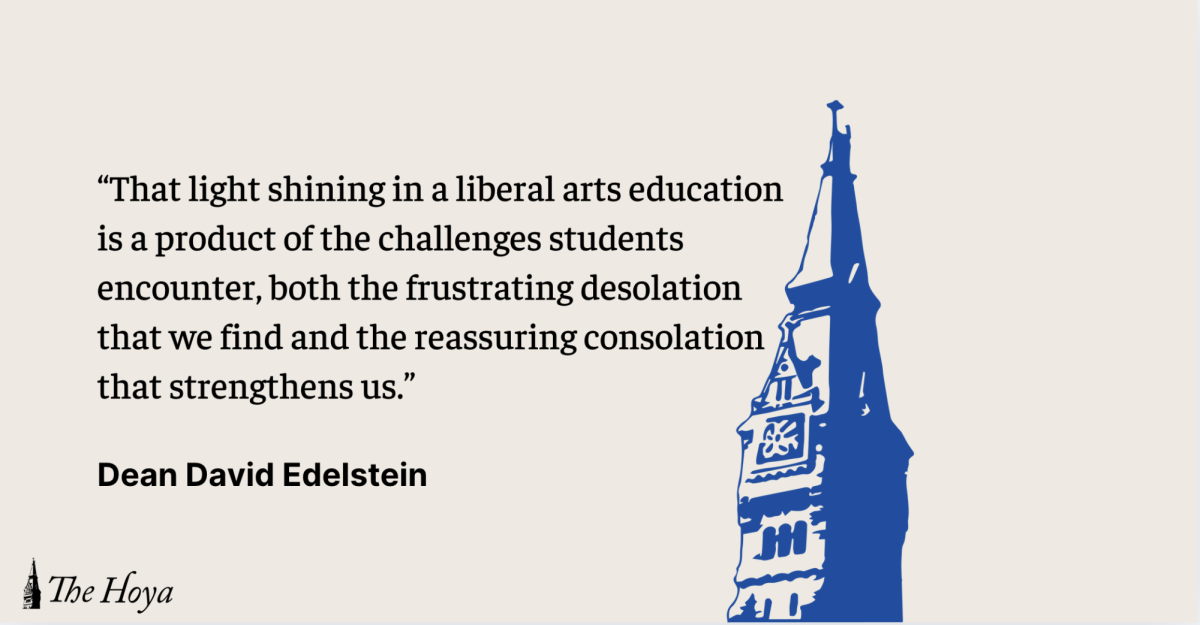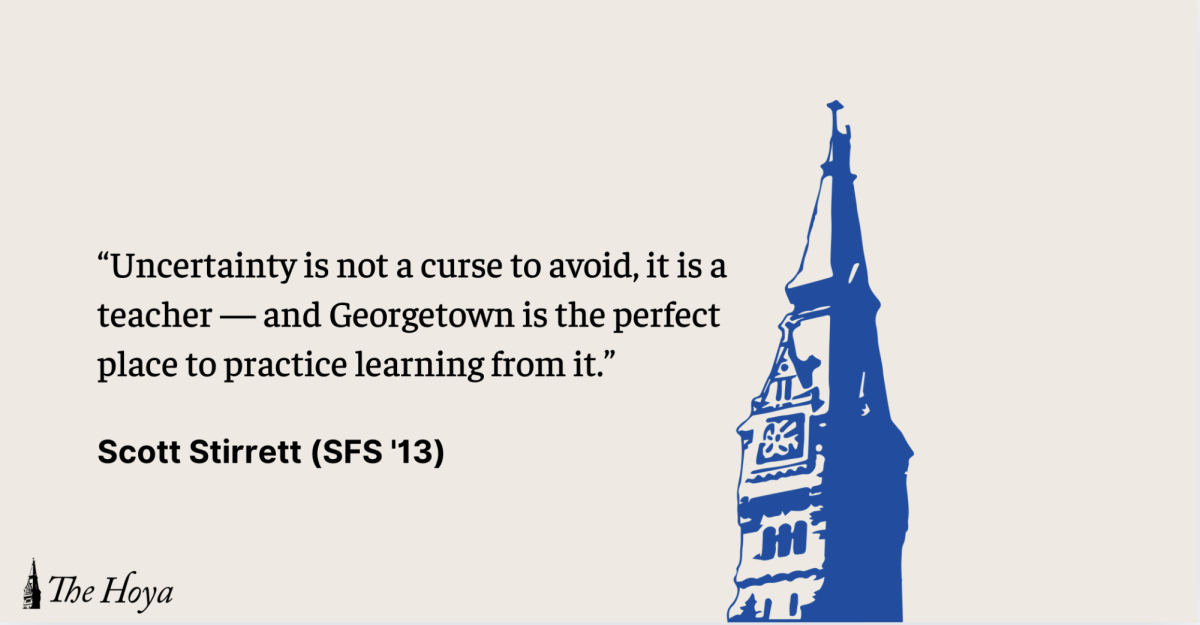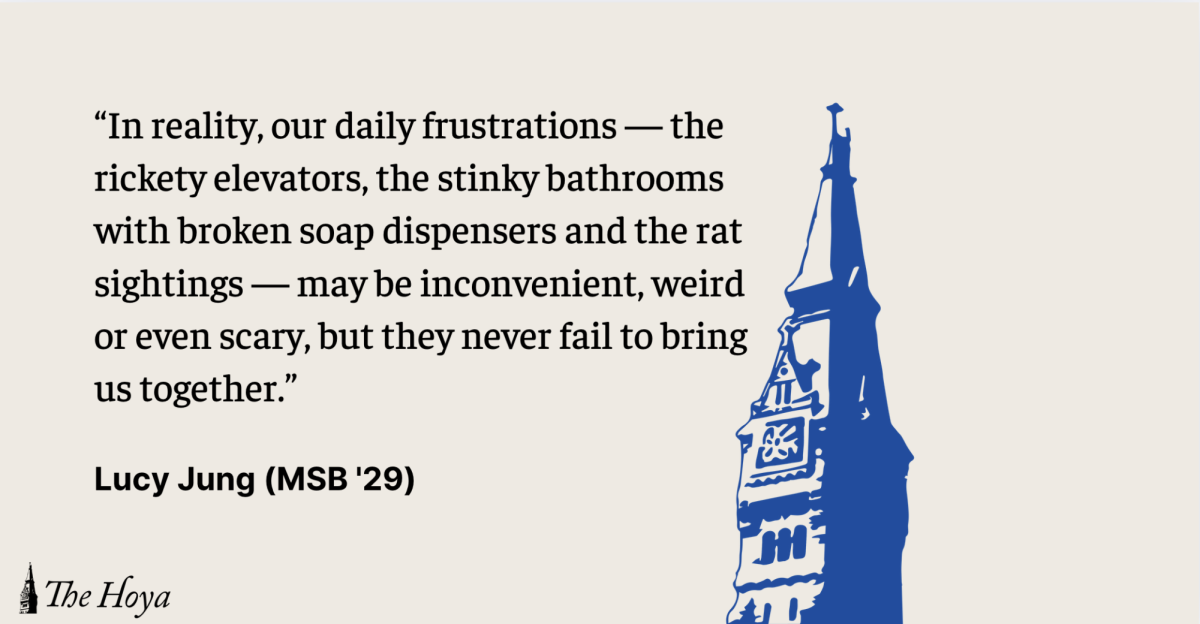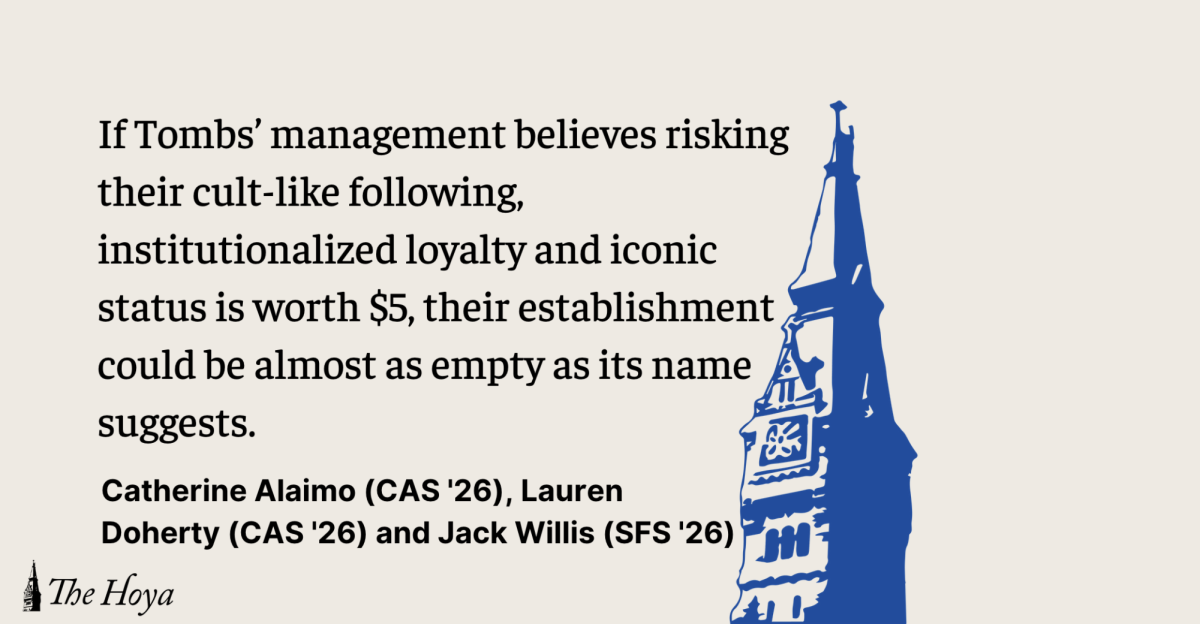For the first time in almost a century, Georgetown University has a new debate society on campus: the Philonomosian Society. Sept. 4, 2024 marked the first anniversary of its revival, after having been defunct since its last mention in the 1931-32 edition of the Georgetown yearbook “Ye Domesday Booke.” However, for this society to be revived, it must be brought back for a good reason; it must have a purpose at Georgetown that justifies its existence.
Readers should know that I am the current president and co-founder of the Philonomosian Society. While I must admit I have an active interest in promulgating its success and portraying it in the best light possible, I hope to advocate for this society in the most objective way I can. My views are my own and do not represent that of the society or its members.
As Plato demonstrates in his dialogue “Republic,” true education does not prosper through bombarding sophisticated and verbose language upon students. Indeed, the language that drives us to truth — if language can do such a thing — most often does so through the simplest of questions. These questions are not clarifying questions to be answered by experts; they are probing ones that slowly pull at the loose threads of an argument. The Philonomosian hopes to revive some of the Platonic vision of education at Georgetown. To do so, it must encourage probing questions and foster diversity of thought, bringing students together in the process.
The spark to create the Philonomosian came from a dire need to bring those from across the political spectrum into the same room. Dialectic, a Platonic method of searching for truth, requires the collision of ideas. It does not work in an echo chamber. Only through the clash of opinions and probing questions, can dialectic bring us to a more complete vision of the true, the good and the beautiful. It was with dialectic in mind that the Philonomosian was resurrected. But dialectic alone does not justify the Philonomosian’s existence considering the existence of the other debate society — the Philodemic Society — on campus.
Firstly, the Philonomosian and Philodemic are often topically different. The Philodemic is a Georgetown tradition to be admired (I am still a member), but it sticks to the model of the collegiate literary societies of old. Their debates have tended to focus more on political theory, philosophy, ethics and literature while the Philonomosian often focuses on policy, whether that be economic, foreign or beyond. In leaning toward debates on the policy side of the spectrum, the Philonomosian has found a niche on campus, attracting those in the McDonough School of Business (which the organization resides under) in addition to those already interested in politics and public policy.
Secondly and more importantly, the Philonomosian differs in structure. The Philonomosian is uniquely divided into five cohorts representing those on the furthest political fringes from the right to the left. Instead of alternating between affirmative to negative, speeches alternate between cohorts. This structure forces the dialectical process, mandating diversity of thought in every debate.
One might think this explicit division of the society would, in turn, divide its members. On the contrary, I have never seen more fellowship between the right and left on campus. It is this identification of political affiliation that brings those from each side — who most likely would have never spoken to each other otherwise — together. Most remarkably, because these students may confront each other’s ideas and may look the so-called enemy eye-to-eye, they often realize there was no real enemy to begin with. And if they do not realize it in the debate, they realize it on the trip to Martin’s Tavern thereafter. Education does not always occur in the classroom.
In this election year, the Philonomosian and her sister the Philodemic are burdened with a greater duty: to remain disciplined and civil, to foster unity and to endeavor to seek truth in a time where discipline, civility, unity and truth are all strained. The members of both societies must recognize this duty and the significance of their roles in the university. They must light the beacons for discourse, fellowship and higher thought. They must make a home for those who disagree. They must keep sacred a place where we may be comfortable in being uncomfortable. Those not members of these societies should endeavor to do the same, whether in the classroom or among those friends who can be trusted. Our education depends on it. The unity of Georgetown depends on it.
George LeMieux is a senior in the College of Arts & Sciences.


